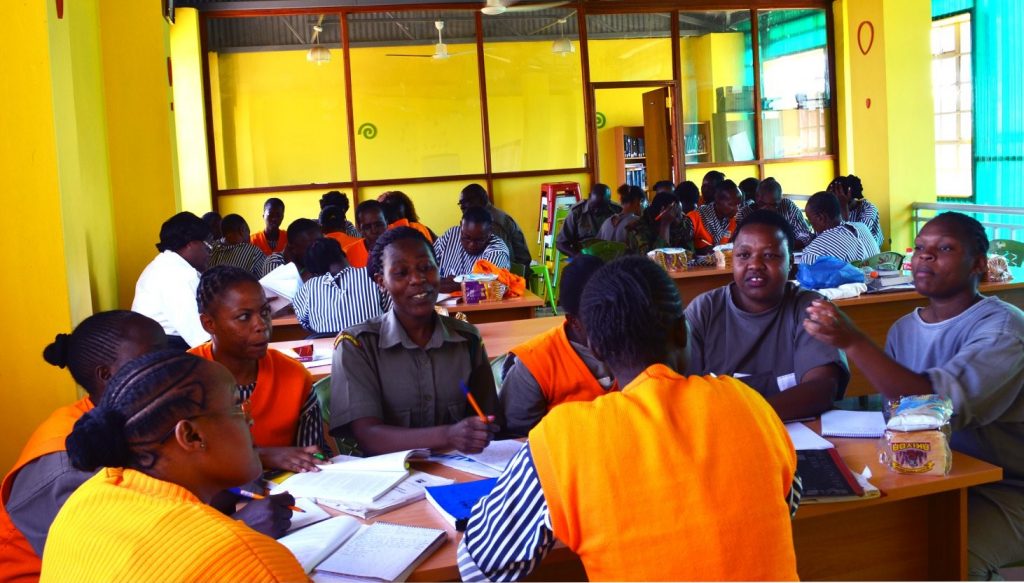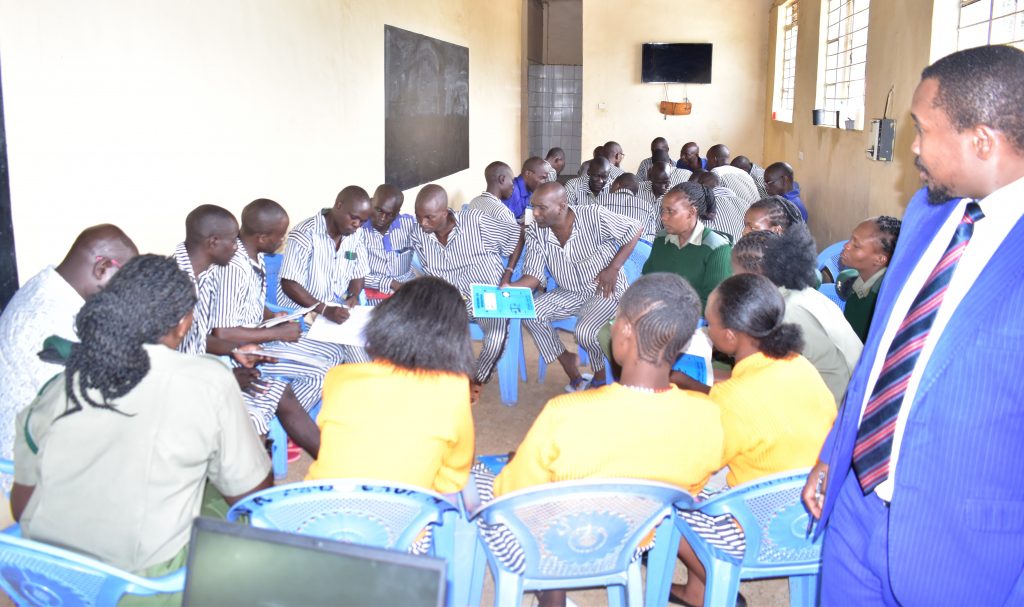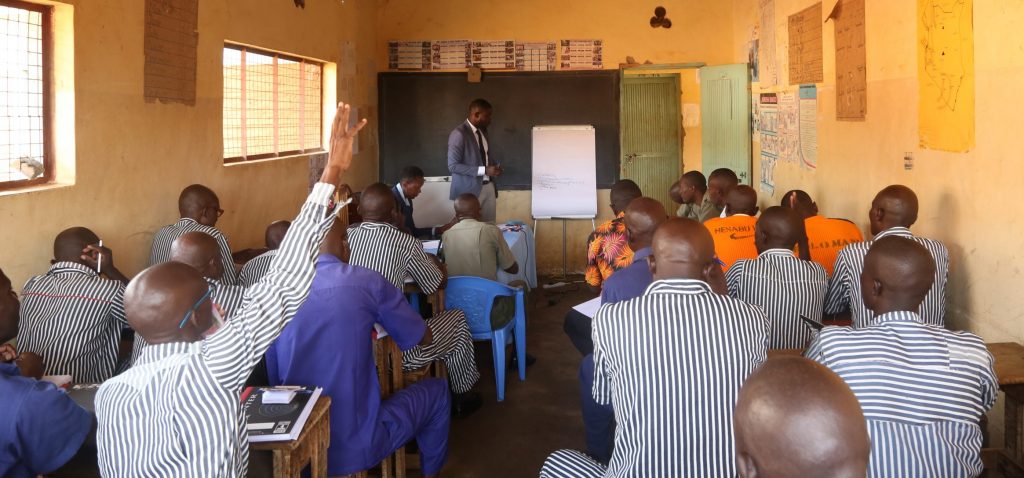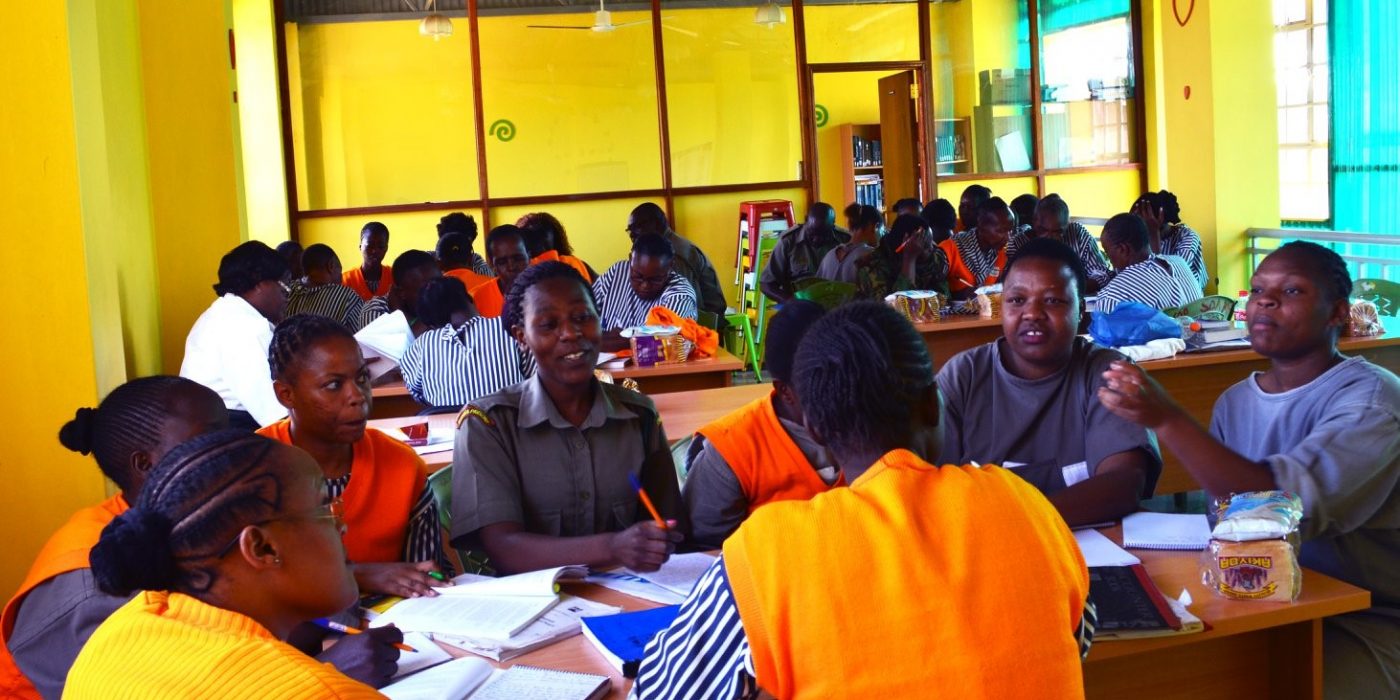Background
Kituo’s Prison paralegal approach was mooted in response to the situation where the state only offers legal representation to people charged with capital offenses, leaving out others who are charged with other offenses. This together with the inability of most people in custody to understand the complexities of the legal system resulted in miscarriages of justice as well as unnecessary congestion in the prisons.
The innovation was triggered by many cases that were being brought to Kituo Cha Sheria about people who were in custody mainly because they lacked knowledge on the legal justice system and thus ended up staying in prison for longer than necessary or even for crimes they never committed. They did not have someone to advise them about their rights and the process in general. Hiring of lawyers was expensive and Kituo Cha Sheria did not have enough personnel hence the need to innovate the prison paralegal project.
Unlike most prison legal aid programmes that seek to sponsor lawyers or attach professional paralegals to the prisons; Kituo’s prison paralegal approach targets the beneficiaries (inmates) themselves to be the drivers and the actors of the initiative. Thus the initiative achieves sustainability with minimal external support.
The prison justice centres project was pioneered at Shimo La Tewa Prison in the year 2009.The project has since then been replicated in 14 Prisons across the country namely; the Shimo La Tewa Women’s Prison, Langata Women’s Prison, Kamiti Maximum Prison, Kisumu’s Kodiaga Main Prison, Meru GK Prison, Kakamega Main Prison, Kisii prison, Edoret prison, Naivasha Prison, Manyani prison, Kitale Prison and Nyeri Maximum Prison.
Paralegals trainings

In each of these prison justice centres, inmates and prison warders receive continuous training and practical exposure to criminal law and procedure, court systems, prosecution and the role of prosecutors, self-representation in criminal matters and paralegalism. As a result, the trained inmates and warders have offered free legal aid services to other inmates. Thus far, more than 10,000 inmates have been released resulting in decongestion of correctional facilities nationwide. Other benefits accruing from the prison justice centres extend beyond individual cases to include general communal and societal benefits such as speedy processing of cases; fair and impartial trials; and the reduction of prison populations while ensuring that justice is fair and accessible.
Due to re-sentencing, a great number of our prison paralegals have been released. Additionally, the law is dynamic and keeps on changing from time to time. Kituo therefore conducts refresher training to new members to be able to offer legal services and support to the inmates.
The work of prison paralegals
The prison paralegals provide legal awareness sessions to inmates. They offer free lessons on crafting cross-examinations questions, drafting petitions, requests for re-sentencing and appeals among other services.
Through this legal empowerment approach, Kituo has so far trained 450 paralegals across the prisons who have since enabled more than 20,000 inmates to have access to legal services resulting in more than 4,346 inmates securing freedom in the last one year.
At the same time, more than 43,789 inmates have been served through virtual court sessions being facilitated through the installation of internet and computers, while over 451 inmates have had their matters settled out of courts through the Alternative Dispute Resolution (ADR) mechanism.
SUPPORT THIS CAUSE
Access to justice through legal education
Kutuo’s access to justice project in prison communities in Kenya by providing free, legal education to prisoners and prison staff. We equip those from the margins of society to make, shape, and implement the law, empowering them to support and defend one another.
Situation
Across Kenya, thousands of inmates cannot afford legal representation and are unable to defend themselves in court. They languish in prisons operating at over 200% capacity, and wait 3–8 years for their cases to reach court. Many are even wrongfully accused or detained. This lack of affordable legal representation creates justice systems that deny a fair hearing and imprison people unnecessarily for years due to unresolved cases.

Solution
We are empowering prisoners and prison staff in Kenya to become paralegals who can provide legal services to defend themselves and those who have no other means to obtain a fair hearing. Kituo’s Prison Paralegal Training equips participants with the basic legal knowledge to confidently navigate the justice system.


